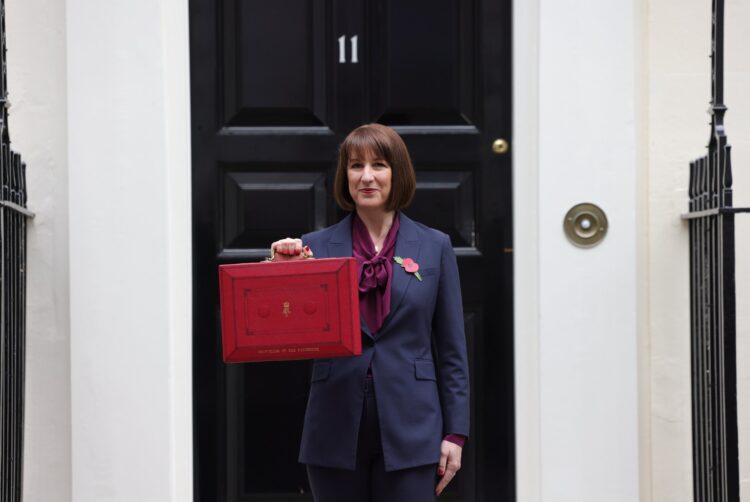‘Welcome clarity’: Ad industry reacts to Labour’s autumn budget

“Today’s budget provides welcome clarity about the new government’s plans.”
IAB UK head of policy and regulatory affairs Christie Dennehy-Neil approached the release of the autumn budget — the first under the new Labour government — with tepid optimism.
Chancellor Rachel Reeves laid out a number of key changes to taxes and spending that are likely to have a significant downstream effect on business and consumer confidence and, therefore, marketing budgets.
Among the key announcements, Reeves confirmed an anticipated £40bn in tax rises: increased employers’ National Insurance costs by 1.2 percentage points to 15%; increased capital gains tax rates (lower rate from 10% to 18%; higher rate from 20% to 24%); scrapped the UK’s non-dom tax scheme and replaced it with a new “residence scheme”; and higher tax rates on private equity investors.
Uncertainty around the budget was said to be a major cause for total marketing budgets being placed “on ice” in Q3. Dennehy-Neil argued that the release of the budget now lifted “some of the uncertainty that stalled marketing spend in Q3”.
The budget release occurred on the same day as the IAB’s H1 2024 Digital Adspend update, which found the UK’s total digital ad market grew 16% in H1, largely driven by investment in online video (+26%).
“The fact that UK GDP grew by a far more conservative 0.5% during the same period indicates that marketers have continued to prioritise advertising despite the uncertain economy,” she Dennehy-Neil. “While the tax rises announced today will increase pressure on business, the OBR [Office for Budget Responsibility] is now predicting stronger economic growth in 2024 and 2025, and we expect advertisers’ confidence to remain buoyant.”
Investment into talent
Stephen Woodford, CEO of the Advertising Association, commented: “The new government repeated their aim today in the budget to create the conditions for growth. It is important to recognise the vital role that advertising plays in supporting this, by helping businesses of all sizes to compete, innovate and support jobs.
“Put simply, investment in advertising is an investment in growth. The latest AA/Warc adspend figures, revealed tomorrow, demonstrate strong annual growth in UK adspend, well ahead of key European markets. The UK is also a leading exporter of advertising and marketing services around the world — another vital contributor to the future growth of our economy.
“The full budget confirmed the government will take steps to transform the Apprenticeship Levy into a Growth and Skills Levy, through £40m investment. Much greater flexibility is something our sector and many others have long called for and we look forward to working with the government to create more effective solutions for businesses looking to develop new talent in our industry.”
IPA Bellwether: Media budgets to expand despite total marketing ‘on ice’
Alongside the budget, the OBR published UK GDP growth forecasts that now expect real GDP growth of 1.1% in 2024, 2.0% in 2025 and 1.8% in 2026.
Media and tech analyst Alex DeGroote told The Media Leader that, despite the growth forecasts being upgraded, he still considered them “very anaemic”.
With the UK economic outlook appearing “fairly weak”, this is “unlikely to encourage advertisers to over-allocate to the UK”, he observed.
DeGroote added that the budget included “fairly draconian tax rises, which will affect the private sector and possible employment numbers”.
Paul Bainsfair, director-general at the IPA, said: “Agencies are great growth engines and advertising spend has a multiplier effect on GDP. But the economics of agencies are dominated by payroll. The change to employer National Insurance contributions represents a very significant increase in the cost base of agencies and threatens their ability to facilitate the growth the government says it is prioritising.
“Moreover, shifts in employee rights will significantly affect how agencies recruit, retain and nurture the creative minds that are essential to our sector’s success.”
Unlocking growth
Within the budget, Reeves confirmed the £1m lifetime limit for Entrepreneurs’ Relief will remain unchanged at 10%, but the current tax rate will be raised from 10% to 14% in April 2025 and to 18% in April 2026, leading to an increased tax hit for entrepreneurs, including in the media and creative industries.
However, the Labour government has repeatedly stated that growing the creative industries is key to the success of the UK economy and doing so will continue to form a central part of the government’s economic mission.
“Overall, this is a stark change to the previous Tory regime,” DeGroote concluded. “It may take some time to adjust to this new reality in the UK.”
Indeed, Bainsfair added: “We just have to hope that this short-term pain will, as the chancellor suggested, ultimately unlock vital long-term growth for the UK economy.”
Creative industries seen as ‘central driver of growth’ by Labour




